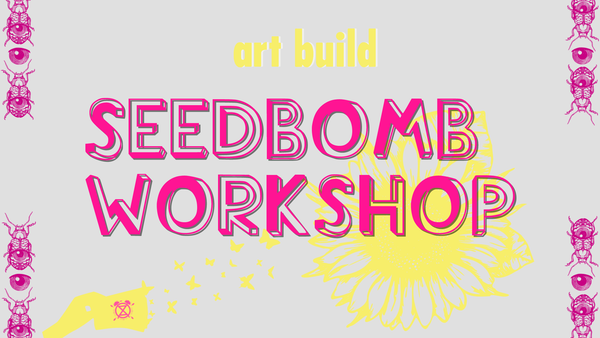
Art Build - Seed Bomb Workshop
Any patch of dirt can be a pollinator garden! Join XR Boston's Gnaturalists to build back biodiversity in urban areas.
The Puppet Free Library, 5:00-7:00pm
What's a pollinator garden? A pollinator garden contains plants that specifically attract insects and birds who play key roles in spreading pollen or seeds. Pollination is critical for maintaining ecosystems and supporting our food supply, and butterflies, bees, wasps, and birds are major contributors. Ideally, the plants in a pollinator garden are native so that the flowers they produce are suitable for the birds and insects who live nearby.
- Between 2022 and 2023, there was a nearly 60% decrease in the Monarch butterfly populations. Monarchs have a huge range, travelling from Canada to Mexico each year and supporting plant reproduction throughout the journey. Their caterpillers eat only milkweed. Adult butterflies also feed on local flowers like yarrow, goldenrod, and purple coneflower.
- In the last 30 years, bee and wasp populations in the eastern United States have declined by more than 90 percent, in part due to habitat loss and changes to native plant distribution.
- Even small urban pollinator gardens can make an impact on pollinator health by creating little landing spots and oases among the concrete jungle.
We will have milkweed and native wildflower seeds. Everyone who participates will get seedbombs to take home and planting instructions. No garden needed!
The Puppet Free Library is in the basement of Emmanuel Church (Newbury St). Access is via the alley between Arlington St and Berkeley St. The official address is: 15 Public Alley 437.
Accessibility
Stairs